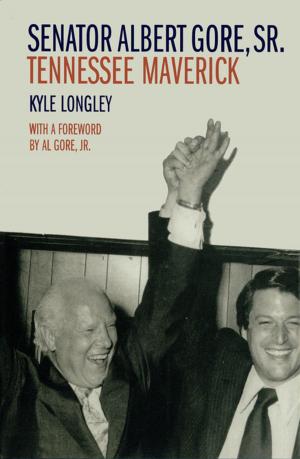Lee and His Generals in War and Memory
Nonfiction, History, Americas, United States, Civil War Period (1850-1877)| Author: | Gary W. Gallagher | ISBN: | 9780807152133 |
| Publisher: | LSU Press | Publication: | August 1, 1998 |
| Imprint: | LSU Press | Language: | English |
| Author: | Gary W. Gallagher |
| ISBN: | 9780807152133 |
| Publisher: | LSU Press |
| Publication: | August 1, 1998 |
| Imprint: | LSU Press |
| Language: | English |
In this collection, Civil War historian Gary W. Gallagher examines Robert E. Lee, his principal subordinates, the treatment they have received in the literature on Confederate military history, and the continuing influence of Lost Cause arguments in the late-twentieth-century United States. Historical images of Lee and his lieutenants were shaped to a remarkable degree by the reminiscences and other writings of ex-Confederates who formulated what became known as the Lost Cause interpretation of the conflict. Lost Cause advocates usually portrayed Lee as a perfect Christian warrior and Stonewall Jackson as his peerless "right arm" and often explained Lee's failings as the result of inept performances by other generals. Many historians throughout the twentieth century have approached Lee and other Confederate military figures within an analytical framework heavily influenced by the Lost Cause school.
The twelve pieces in Lee and His Generals in War and Memory explore the effect of Lost Cause arguments on popular perceptions of Lee and his lieutenants. Part I offers four essays on Lee, followed in Part II by five essays that scrutinize several of Lee's most famous subordinates, including Stonewall Jackson, John Bankhead Magruder, James Longstreet, A.P. Hill, Richard S. Ewell, and Jubal Early. Taken together, these pieces not only consider how Lost Cause writings enhanced or diminished Confederate military reputations but also illuminate the various ways post--Civil War writers have interpreted the actions and impacts of these commanders.
Part III contains two articles that shift the focus to the writings of Jubal Early and LaSalle Corbell Pickett, both of whom succeeded in advancing the notion of gallant Lost Cause warriors. The final two essays, which contemplate the current debate over the Civil War's meaning for modern Americans, focus on Ken Burns's documentary The Civil War and on the issue of battlefield preservation. Gallagher adeptly highlights the chasm that often separates academic and popular perceptions of the Civil War and discusses some of the ways in which the Lost Cause continues to resonate.
Lee and His Generals in War and Memory will certainly attract those interested in Lee and his campaigns, the Army of Northern Virginia, the establishment of popular images of the Confederate military, and the manner in which historical memory is created and perpetuated.
In this collection, Civil War historian Gary W. Gallagher examines Robert E. Lee, his principal subordinates, the treatment they have received in the literature on Confederate military history, and the continuing influence of Lost Cause arguments in the late-twentieth-century United States. Historical images of Lee and his lieutenants were shaped to a remarkable degree by the reminiscences and other writings of ex-Confederates who formulated what became known as the Lost Cause interpretation of the conflict. Lost Cause advocates usually portrayed Lee as a perfect Christian warrior and Stonewall Jackson as his peerless "right arm" and often explained Lee's failings as the result of inept performances by other generals. Many historians throughout the twentieth century have approached Lee and other Confederate military figures within an analytical framework heavily influenced by the Lost Cause school.
The twelve pieces in Lee and His Generals in War and Memory explore the effect of Lost Cause arguments on popular perceptions of Lee and his lieutenants. Part I offers four essays on Lee, followed in Part II by five essays that scrutinize several of Lee's most famous subordinates, including Stonewall Jackson, John Bankhead Magruder, James Longstreet, A.P. Hill, Richard S. Ewell, and Jubal Early. Taken together, these pieces not only consider how Lost Cause writings enhanced or diminished Confederate military reputations but also illuminate the various ways post--Civil War writers have interpreted the actions and impacts of these commanders.
Part III contains two articles that shift the focus to the writings of Jubal Early and LaSalle Corbell Pickett, both of whom succeeded in advancing the notion of gallant Lost Cause warriors. The final two essays, which contemplate the current debate over the Civil War's meaning for modern Americans, focus on Ken Burns's documentary The Civil War and on the issue of battlefield preservation. Gallagher adeptly highlights the chasm that often separates academic and popular perceptions of the Civil War and discusses some of the ways in which the Lost Cause continues to resonate.
Lee and His Generals in War and Memory will certainly attract those interested in Lee and his campaigns, the Army of Northern Virginia, the establishment of popular images of the Confederate military, and the manner in which historical memory is created and perpetuated.















